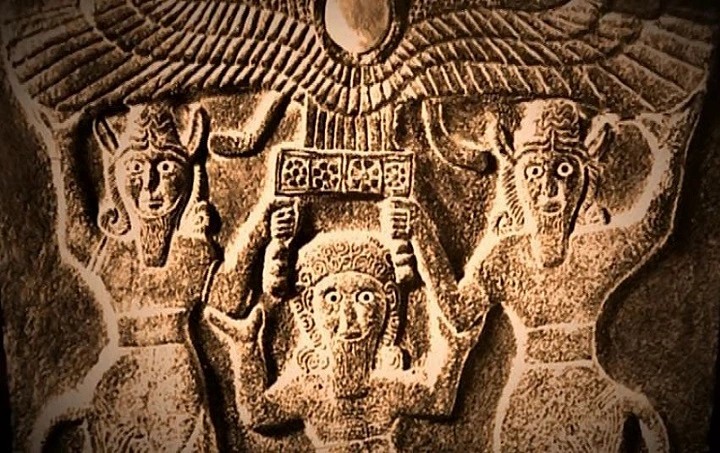The ancient Anunnaki are said to have created the human race by genetically modifying primitive humans to use them as a workforce. But before humans were created, the Anunnaki used the ancient Igigs as their primary workforce.
It is said that the Igigs – those who turn and see – were the ancient astronaut gods of the younger generation, servants of the mighty Anunnaki, who came to Earth to mine gold.
The terminology used to describe the gods is extremely complex and still needs much research. Scholars believe that the term “Igigi” is of Semitic origin and indicates a group of gods in the Mesopotamian pantheon. It is still unclear which ancient gods belonged to the Igigs, but many scholars suggest that Mardik-the patron god of the city of Babylon-was one of the Igigs.
Scholars use the term “Igigi” to refer to mythological Sumerian deities. According to them, the Igigi were junior servants of the Anunnaki, who initiated a rebellion against their masters and the dictatorship of Enlil. Therefore, later on, the Anunnaki replaced the Igigi with humans.
In the myth of Atrahas, the Babylonian flood story and a precursor to the Gilgamesh flood story, Sumerian paradise is described as a garden where the inferior gods (Igis) were forced to dig a watercourse by their masters, the Anunnaki:
- “When the gods, like men, bore labor and suffered labor, the labor of the gods was great, the labor was hard; the calamities were many.”
- “The seven great Anunnaki made Igigi suffer labor.”
- “When the gods, the humanoids, carried the labor, carried the load, the load of the gods was great, the distress excessive. The great Anunnaki, the seven, made the Igigi take upon themselves labor.”
Igigi
Many believe that the Igigi were constantly in orbit around our planet on giant platforms that processed ore delivered from Earth. After processing the minerals, the material was transferred to other ships and eventually delivered to the Anunnaki home planet, Nibiru.
The Igigi apparently never encountered humanity. Several texts are said to refer to them, suggesting that the Igigi were “too high for humanity” and therefore “were not connected to humans.”
After years of hard work, the Igigi rebelled against their masters. Sadly, they “set fire to their tools and surrounded the Great House of Enlil by night,” forcing the ancient Anunnaki to find another source of labor. Finally, the Igigi were defeated and replaced by a more docile race, the humans.
Some ancient texts support the existence of the Igigi by describing them as supreme cosmic beings, so evolved in every respect that any living being at least one step behind their level of superiority was of little, if any, importance.
Despite their almost celestial traits, the Igigi were, after all, only slaves, given enough power to effectively serve their purpose, and mistakenly believed that they could rebel against their totalitarian masters and break free from their chains.
Like most revolutions on Earth, it ended in the defeat of the freedom-hungry. Having gotten rid of Igigi, the Anunnaki continued to combine and modify their genes until that moment – 400,000 years ago – when they invented the perfect slave: man.
